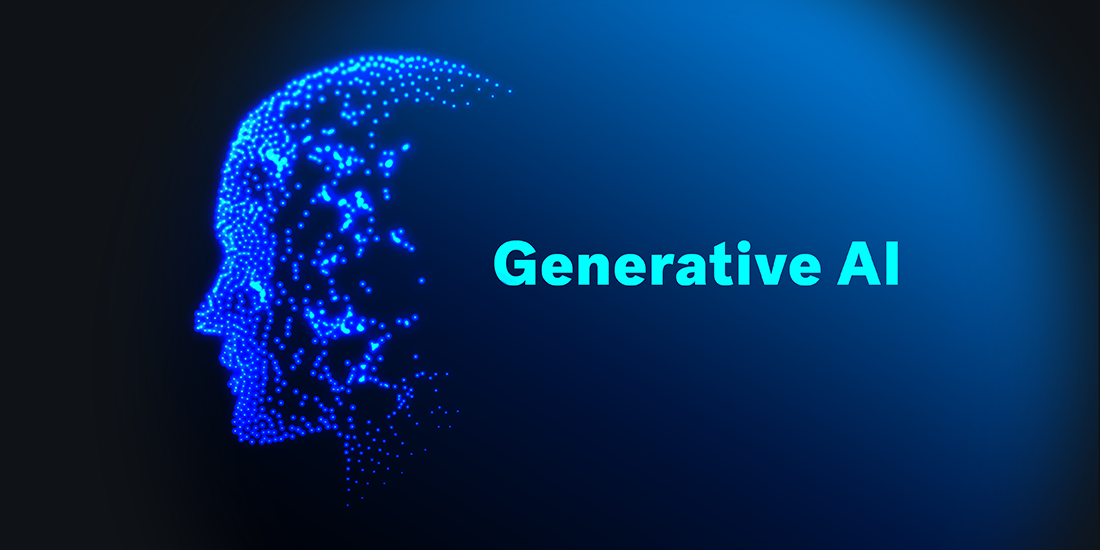In the past few decades, technological advancements have propelled us into an era of unprecedented change. One of the most fascinating developments in this digital revolution is the rise of Generative Artificial Intelligence (AI) and its profound impact on automation across various industries. From producing art and music to assisting in scientific research and decision-making, generative AI is transforming the way we work, create, and innovate.
Understanding Generative AI: A Creative Powerhouse
Generative AI refers to a subset of artificial intelligence that involves training algorithms to generate new, original content. Unlike traditional AI systems, which are programmed to perform specific tasks, generative AI learns from vast amounts of data to produce novel outputs. This technology is often associated with machine learning techniques, such as neural networks and deep learning, which enable computers to analyze patterns in data and produce creative outputs that mimic human-generated content.
One of the most remarkable aspects of generative AI is its versatility. It can be applied to a wide range of creative and practical tasks, including:
- Art and Design: Generative AI has emerged as a groundbreaking tool in the world of art and design. Artists and designers are using AI algorithms to create unique paintings, sculptures, and digital artworks. These algorithms can analyze existing artworks and generate pieces that blend different styles, colors, and themes, pushing the boundaries of artistic expression.
- Music Composition: Musicians and composers are harnessing the power of generative AI to create original melodies, harmonies, and compositions. AI-driven tools can analyze musical patterns from various genres and eras to generate music that resonates with listeners.
- Content Creation: Content creators and writers are utilizing generative AI to assist in producing articles, blog posts, and even entire books. AI algorithms can generate coherent and engaging written content, saving time and enhancing productivity.
- Scientific Discovery: Generative AI is also making waves in scientific research. It can help researchers explore complex datasets, simulate experiments, and generate hypotheses, accelerating the pace of discovery in fields such as drug development, materials science, and astronomy.
- Personalized Marketing: Businesses are leveraging generative AI to create personalized marketing campaigns. By analyzing customer data and generating tailored content, companies can engage with consumers on a more individualized level.
Automation: Efficiency and Beyond
While generative AI’s creative applications are awe-inspiring, its impact on automation extends far beyond the realm of creativity. Automation, powered by AI technologies, is transforming industries by streamlining processes, enhancing decision-making, and increasing efficiency.
- Manufacturing and Production: In manufacturing, AI-driven robots and machines are performing tasks with unparalleled precision and speed. Generative AI can optimize production lines, predict maintenance needs, and adapt to changing demands in real-time, revolutionizing traditional manufacturing processes.
- Supply Chain Management: Generative AI enables supply chain optimization by analyzing vast amounts of data to forecast demand, manage inventory, and optimize logistics. This results in reduced costs, minimized waste, and improved customer satisfaction.
- Healthcare and Diagnostics: In the healthcare sector, automation through AI is enhancing diagnostics, drug discovery, and patient care. Generative AI algorithms can analyze medical images, predict disease outcomes, and assist doctors in making more accurate diagnoses.
- Finance and Trading: Financial institutions are using generative AI to automate trading strategies, risk assessment, and fraud detection. These AI-powered systems can process enormous amounts of financial data in real-time, leading to more informed and profitable decisions.
- Customer Service: AI-powered chatbots and virtual assistants are transforming customer service by providing immediate responses and personalized interactions. Generative AI enables these systems to understand natural language and deliver human-like interactions, enhancing the overall customer experience.
Challenges and Ethical Considerations
While the potential benefits of generative AI and automation are vast, they also raise important ethical and societal considerations. As AI systems become more sophisticated, questions about data privacy, algorithmic bias, and job displacement come to the forefront. Striking a balance between technological advancement and responsible deployment is crucial to ensure that the benefits of generative AI and automation are equitably distributed and do not perpetuate existing inequalities.
The Future of Generative AI and Automation
The evolution of generative AI and automation promises to reshape industries, redefine creativity, and unlock new opportunities for innovation. As algorithms continue to learn from vast datasets and produce increasingly sophisticated outputs, the possibilities for collaboration between humans and AI are endless.
In the coming years, we can expect to see generative AI and automation play an even more significant role in sectors such as entertainment, education, agriculture, and urban planning. These technologies have the potential to drive economic growth, enhance decision-making processes, and address complex global challenges.
In conclusion, generative AI and automation are catalyzing a paradigm shift in how we approach creativity, problem-solving, and productivity. From generating art and music to optimizing supply chains and healthcare, these technologies are revolutionizing industries and pushing the boundaries of human potential. However, as we embrace these innovations, it is imperative that we do so responsibly, considering the ethical implications and working towards a future where AI and humans coexist harmoniously for the betterment of society as a whole.
For more interesting articles visit our site


